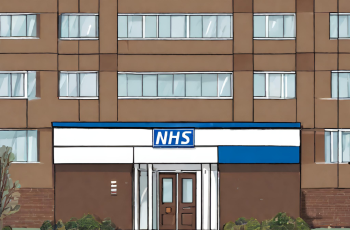The ongoing strikes by junior doctors in the UK have brought to light significant tensions between healthcare professionals and the government. Over the past ten months, junior doctors have participated in 34 days of strikes, protesting against inadequate pay and working conditions. The British Medical Association (BMA) rejected a government offer that included an additional 3% on top of an already proposed 8%, deeming it “insulting.” This rejection underscores the BMA’s belief that the government does not value the contributions of doctors and highlights the growing frustration within the medical community.

Prime Minister Rishi Sunak has faced substantial criticism for his handling of the situation, often shifting the blame onto junior doctors for the disruptions within the NHS. He claimed that other groups, such as consultants and specialty doctors, accepted fair offers, but this assertion has been challenged by the BMA, which clarified that these groups are still in the process of voting on the government’s proposals. This miscommunication has further fueled tensions between the government and healthcare professionals.
The strikes have resulted in severe consequences for the NHS, with an estimated £2 billion lost due to canceled and rescheduled appointments and operations. Reports indicate that over 113,739 appointments have been postponed, with the actual number likely higher as trusts preemptively avoid scheduling on strike days. This ongoing dispute has raised significant concerns among NHS leaders, who are urging both junior doctors and the government to reach an agreement swiftly to mitigate the impact on patient care.
Despite the government’s claims of hiring 50,000 new nurses, it is important to note that over 42,000 nurses have left the NHS, indicating a critical staffing issue that cannot be ignored. The government’s attempts to deflect responsibility by highlighting these hires do not address the root causes of the current crisis. The ongoing strikes and cancellations are a direct result of the government’s failure to provide a satisfactory pay offer, which the BMA insists must include full pay restoration to ensure that doctors are compensated fairly for their work.
The strikes not only affect junior doctors but also place an immense burden on their colleagues, including senior doctors and other healthcare staff, who must manage the NHS amidst these absences. The longer the government delays in making a reasonable offer, the more everyone involved suffers, including the junior doctors themselves, who are increasingly feeling the strain of their decisions.
As negotiations continue between the BMA and Health Secretary Victoria Atkins, another ballot is being conducted to determine whether the strikes will persist until September if an agreement is not reached. The consensus among doctors is that the strikes cannot continue indefinitely, but the pressing issue of their livelihood takes precedence. Many doctors are struggling with rising living costs and student loan debts, which exacerbate their financial difficulties.
In high-pressure environments like the NHS, adequate compensation is essential, and the current pay structure falls short. Junior doctors are justified in their industrial action, as it reflects the government’s responsibility to ensure the welfare of healthcare employees. The situation demands urgent attention, as both the healthcare system and the general public bear the consequences of the ongoing strikes. The impact on patients is particularly concerning, with many facing delayed treatments and increased anxiety over their health conditions.
The government must recognize that effective healthcare relies on a motivated and adequately compensated workforce. Addressing the dissatisfaction among NHS staff is crucial for creating an environment where healthcare professionals feel valued and supported. This includes not only competitive salaries but also improved working conditions, adequate staffing levels, and opportunities for professional development.

Ultimately, the resolution of this conflict hinges on the government’s willingness to engage in meaningful negotiations and provide a fair and reasonable pay offer. Without addressing the underlying issues, the NHS will continue to face challenges that impact patient care and the well-being of its workforce. The future of the healthcare system depends on recognizing the critical role of junior doctors and ensuring they are adequately supported and compensated for their vital contributions. Only through collaboration and a commitment to addressing the root causes of dissatisfaction among NHS staff can the government hope to fulfill its promise of an efficient healthcare system that effectively serves the needs of the public.




